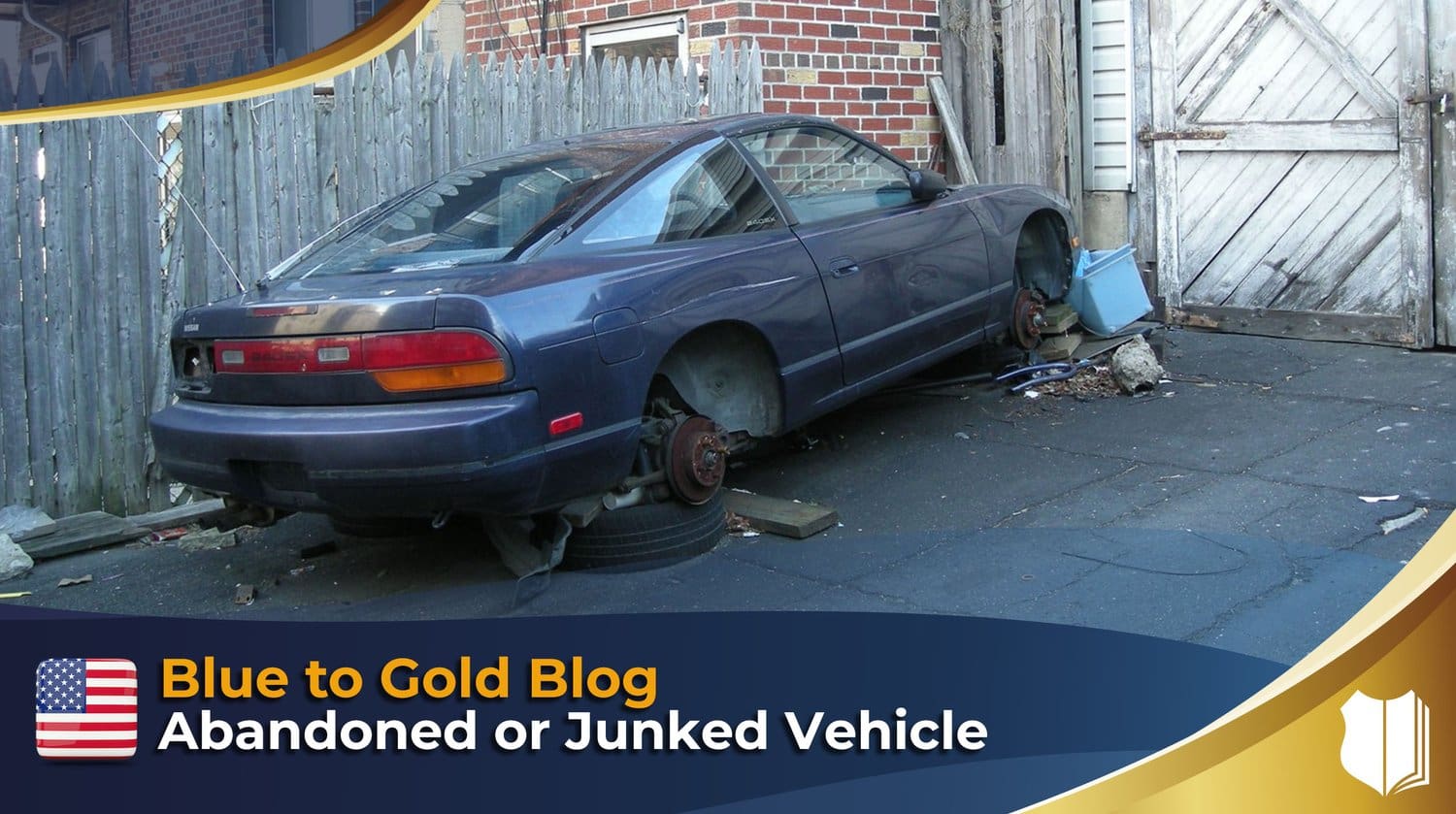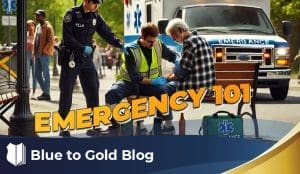This is a question that comes up a lot. I’m being very proactive about this issue, which is: Can police tag an abandoned or junked vehicle when it’s on curtilage?
Okay, here is the scenario. There’s a new ordinance. This comes out of the great state of Louisiana. There’s an ordinance that directs police officers to tag abandoned or junked vehicles on private property without consent, without a search warrant, and then give them notice that they have to get the thing out of there.
Now the next question, which is not answered by the scenario is: “Even if officers tag it, where does it go?” I guess we’re going to need a warrant to seize it. I don’t know. I’d like to know that. I’d like to know what the ordinance says about that.
So, can officers do this? It applies to code enforcement and applies to agents of the government, not just law enforcement. But I would recommend that cops be extremely cautious about this.
Here’s the question I have for you: Is the vehicle on curtilage or is it on open fields? Open fields are those areas that a person may own, but they’re not protected by the Fourth Amendment. Somebody can own 100 acres, but that is not going to be 100 acres of curtilage. It’s going to be maybe an acre of curtilage. I’d want to see pictures of what the land looks like and where the home is, and things that they have set up, like barbecues, lawn furniture, and so on.
But certainly, you can own a lot more land than curtilage. So, if the vehicle is on curtilage, buyer beware, you’re probably going to get burned very badly. Curtilage is those areas that are intimately associated with the home and with family life. They’re physically and psychologically associated with domestic life. The backyard is your quintessential curtilage, your carports, your side yard, areas adjacent to your home. And if the car is there, my belief is 100% that cops cannot be there tagging cars.
Now, if the car is in the driveway, I’ve seen cases go back and forth. But if that portion of the driveway is curtilage, I would not be on it. Why? Because you don’t have the homeowner’s consent to go onto their property and tag cars. It’s not reasonable to think that they don’t care. You don’t have an implied consent either. They didn’t tell you if you could be there or not.
The only saving grace potentially, on this one, is if the ordinance announced that homeowners have to let police onto their property that have cars, but I very much doubt it says something like that. And even if it did, it’s subject to litigation. I don’t think you can just announce to people, “Hey, if you live in our town, your Fourth Amendment rights are subdued. Our interest in tagging your junk car or a brand-new car is higher than the Fourth Amendment.”
So even if it gave people notice, I don’t think it’s valid. I see this so many times around the country. I see officers going into people’s backyards, going on to the side yards of their houses and tagging things and tagging cars. I see cops going into car ports and so forth and getting VINs from cars, because they have no plates, or the plates don’t match.
You may have probable cause, but the probable cause does not get you onto their property.
So that’s the problem here.
If it’s me, I’m not going onto people’s curtilage to enforce a junk vehicle ordinance without a good knock on the door. I’m knocking on the door. I’ll try to make contact and let the person know and maybe give them a slip of paper that says the vehicle is junk. But I’m not snooping on people’s property and so forth. My training and experience tell me that it violates the Constitution.
You can also look at a case called Collins versus Virginia, the US Supreme Court, about curtilage, and how cops can’t be on there with just probable cause alone.
So, there’s my answer. Do what you want with it. I’m sure the city in Louisiana had legal counsel, telling them that this was okay. They probably have a city attorney. But if I’m the city attorney, I’m saying “No!” So that’s my own opinion. Reasonable minds can differ, but that’s where I’m at on it.
Okay, I hope it helps you. Let your friends know about these articles. Until next time, my friends, stay safe.











